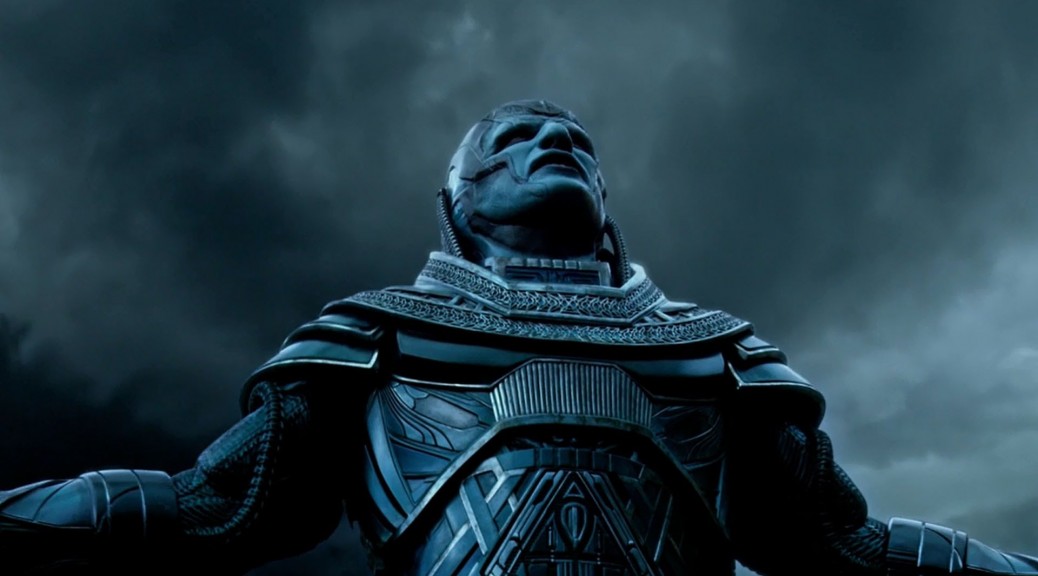Starting on a negative note is such a no-no, but I feel the need to get the film’s irritating anomalies out the way. How these newer movies are supposed to fit into the overall X-Men canon is becoming more and more obscure as plotlines get twisted and character developments rewritten.
In Deadpool, the character’s willingness to break the fourth wall is a clever method of addressing plot incongruences, and in X: Men: Apocalypse this is done to an extent through the use of Easter eggs and inside jokes. However, it does take a concerted effort to, as Elsa would say, let it go.
It is a mark of fans’ devotion to the franchise that they are willing to do just that – at least that is the conclusion I can draw based on the continued success of the franchise, and the cheers elicited from the audience as Apocalypse’s end credits rolled.
Attending the launch of Ster-Kinekor’s seventh IMAX cinema, at the newly-opened Mall of Africa in Midrand, I entered the film on a high from sugary cocktails and colourful candy. I exited with a feeling of exhilaration, having been taken on a visual vortex of epic proportions – from the opening sequence all the way through to the final battle that is the film’s obligatory climax.
Due to stories of sardine-like crowds and stolen cars a lot of people, including me, have been avoiding the Mall of Africa like the plague. It’s not as bad as everyone makes it seem, and watching Apocalypse on IMAX 3-D is worth it – although it is a serious assault on your auditory faculties.
Brought to you in all the splendour of 21st century digital innovation, is a story set 10 years after X-Men: Days of Future Past i.e. 1983. Attention to detail in costume and art direction bring the ‘80s to life; but my favourite incarnation of the fashionably dubious decade is in the portrayal of its “bad” mutants.
The shots of Professor Xavier’s school and his students look like ‘80s period pieces, but when it comes to the darker and more troubled mutants – the movie’s so-called villains – they look like something out of a kitsch ‘80s fantasy film. Whether this was the intention, is debatable; but it’s effective and serves to visually juxtapose the two sides of the mutant argument.
My hesitancy to use the term villains stems from the fact that the mutants who sway towards the dark side, don’t act or feel the way they do because they’re simply evil or superficially bent on destruction. Troubled pasts and conflicting emotions may lead the wrong way, but can be overcome – which is something these films have always sought to address, particularly through Magneto, Mystique and Wolverine.
Even En Sabah Nur – this instalment’s big bad – has an ambiguous fibre in his centuries-old being. In a scene which echoes Leeloo’s horror at what humanity has done to the world, in The Fifth Element, it is difficult to disagree with En Sabah Nur’s disdain, and his disapproval of the systems that constrict us, and our potential, as a race. Oscar Isaac, one of the most exciting actors emerging into Hollywood’s spotlight, portrays En Sabah Nur – marking Isaac’s second major debut into a massive movie franchise.
Speaking of massive franchises, Game of Thrones’ Sophie Turner steps into Famke Janssen’s shoes, to portray a younger version of Jean Grey. In doing so, she mirrors fellow Thrones’ star Emilia Clarke, who took over the role of Sarah Connor last year. It’s great to see these young actresses start their careers deviating from the norm of being lobbed with mediocre roles in formulaic “chick flicks”.
The character of Mystique, however, has been somewhat overridden by Jennifer Lawrence’s star power. For someone who is “mutant and proud” she sure spends a lot of time as a pretty blonde. The story kind of excuses this by Mystique disguising herself due to her unwillingness to be labelled a hero. She is also the most wildly divergent from the older version of the character. This is annoying in its continuity anomaly, but empowering, in that she has become more than just a cog of Magneto’s rage.
But if this were all about character, I would just walk out and re-watch Christopher Nolan’s Batman trilogy. Bruce Wayne, and Christian Bale’s interpretation of the character, is my favourite to watch; but, thematically, first prize goes to X-Men. Each film carries with it Professor Xavier’s optimism of a better humanity – and our ability to choose the right path.
X:Men: Apocalypse could just as easily be about our own probable apocalypse. Through politics, prejudice, and military mismanagement, the film implicitly addresses nuclear disarmament, refugee crises and the disenfranchisement of the powerless.
The pomp and grandeur of the visual effects veil these themes, while muffling the characters, but they are there nevertheless. Along with trademark humour to lift the mood and remind us why we love the characters, Apocalypse is a stumbling but welcome continuation of this part of the Marvel universe.
Published on Fortress of Solitude.
